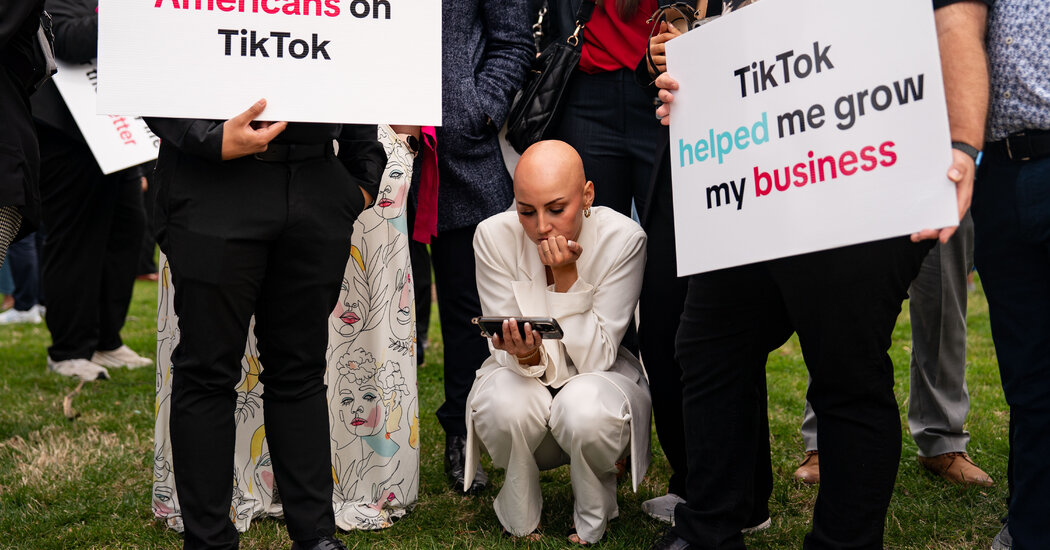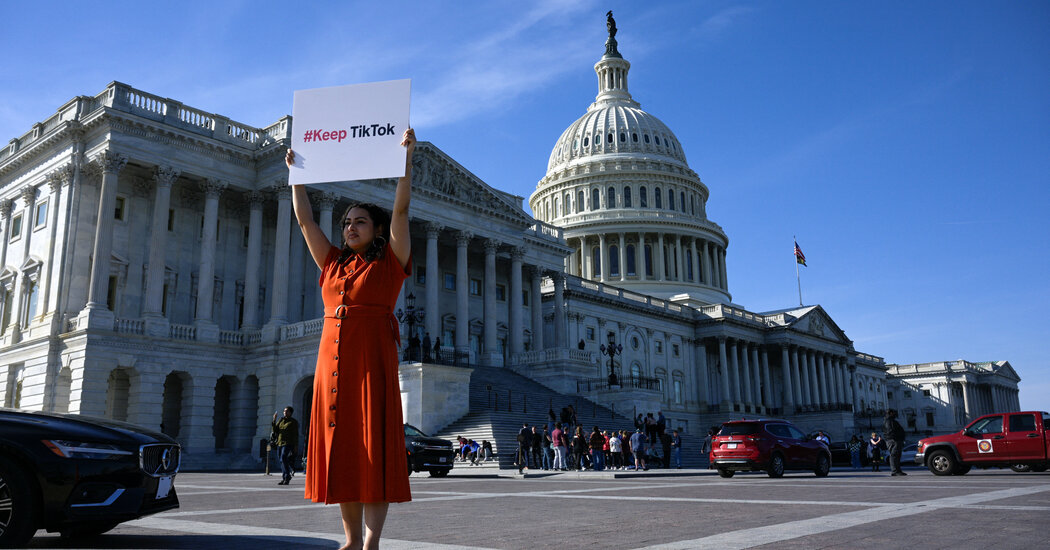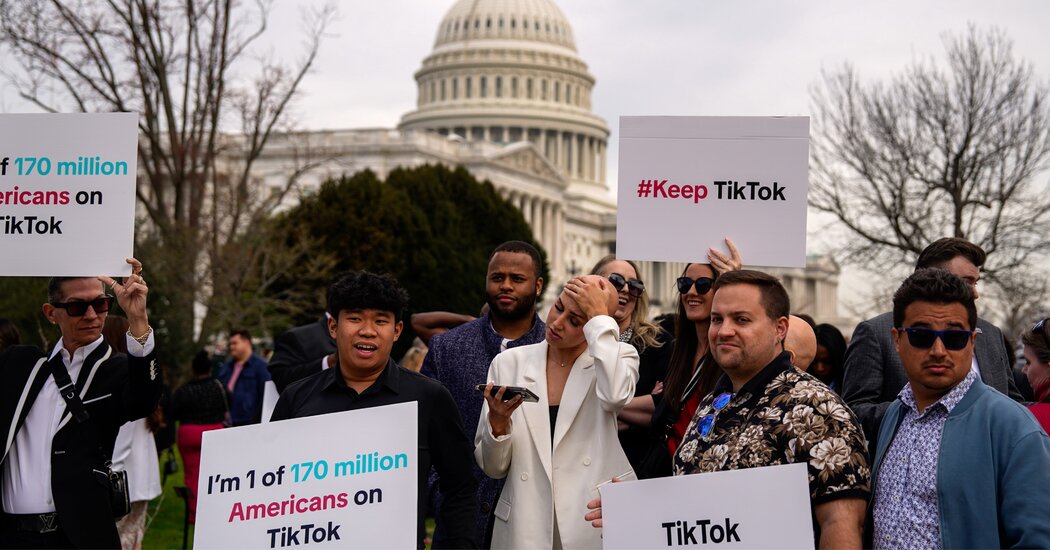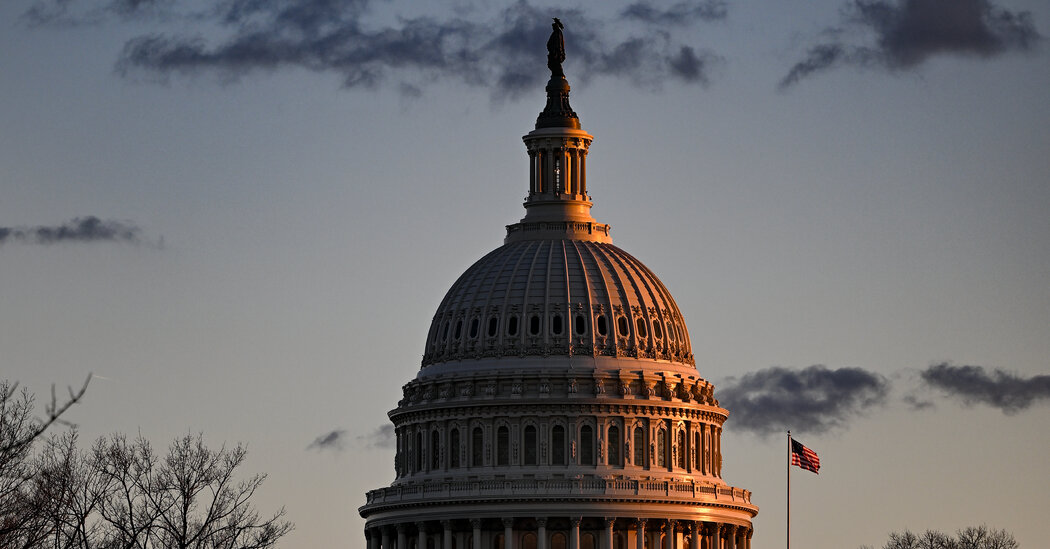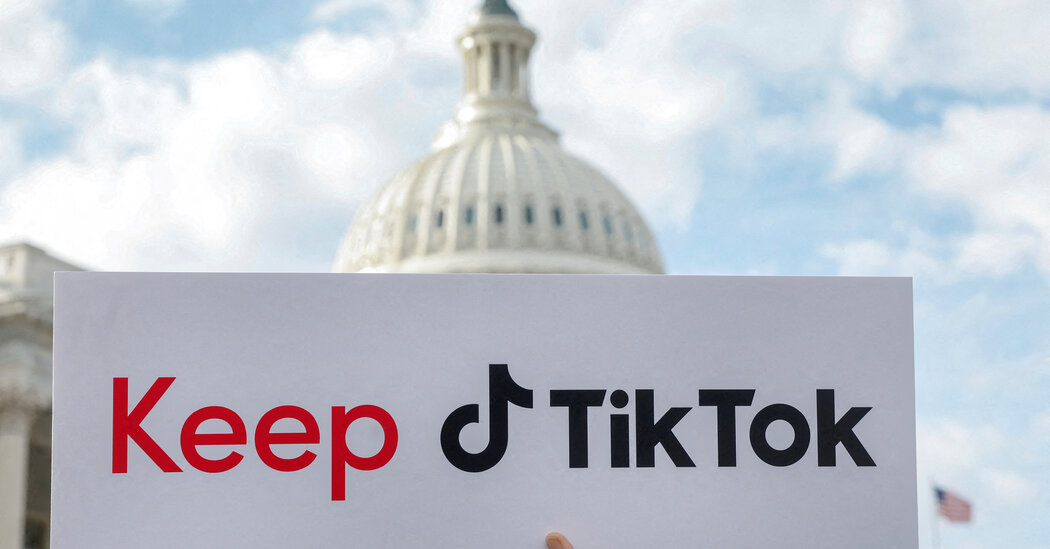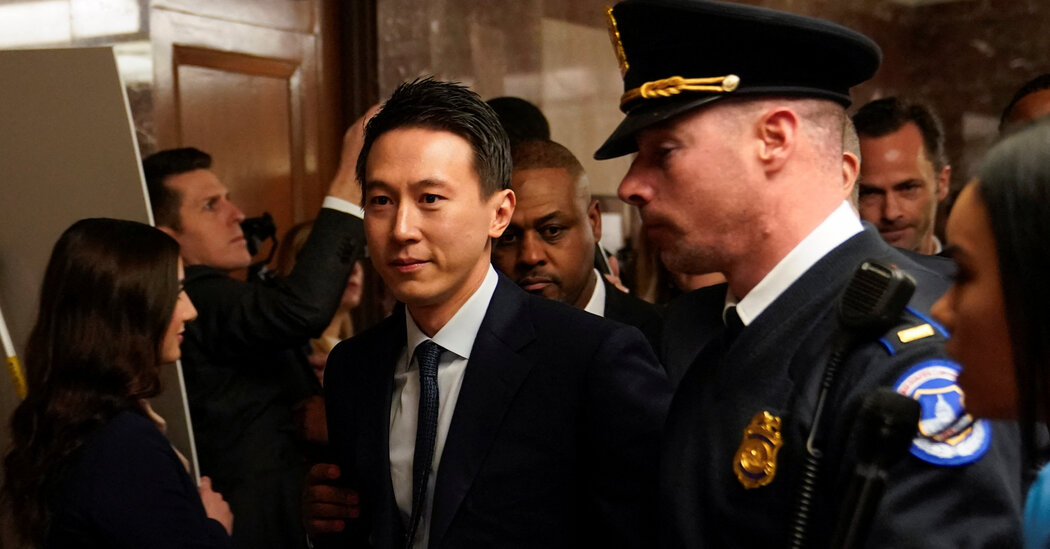For years, the U.S. investors who backed ByteDance, the Chinese internet company that owns TikTok, have wrestled with the complexities of owning a piece of a geopolitically fraught social media app. Now it’s gotten even more complicated. A bill to force ByteDance to sell TikTok is winding its way through the Senate after sailing through the House this month. Questions about whether TikTok’s Chinese ties make it a national security threat are mounting. And U.S. investors including General Atlantic, Susquehanna International Group and Sequoia Capital — which collectively poured billions…
Tag: Beijing Bytedance Technology Co Ltd
TikTok Fight Cast Shadow Over Investments in Other Chinese Companies
When investors talk about “zombie” companies, they’re usually referring to distressed start-ups that are hobbling along, unable to grow and unlikely to ever return the money they’ve raised. But as deal makers feverishly debated efforts this week by lawmakers to force TikTok’s Chinese parent company, ByteDance, to sell the app, they talked about a new version: China zombies. China zombies may have booming businesses, but they’re unlikely to provide investors with any immediate return because they’re stuck in geopolitical cross hairs. It’s not just the investors in ByteDance who, after…
TikTok Bill’s Progress Slows in the Senate
After a bill that would force TikTok’s Chinese parent company to sell the app or face a nationwide ban sailed through the House at breakneck speed this week, its progress has slowed in the Senate. Senator Chuck Schumer of New York, the Democratic leader who determines what legislation gets a vote, has not decided whether to bring the bill to the floor, his spokesman said. Senators — some of whom have their own versions of bills targeting TikTok — will need to be convinced. Other legislation on the runway could…
What China Is Saying About the TikTok Furor in Washington
This is not the first time that China has seen a frenzy over TikTok consume Washington. In 2020, former President Donald J. Trump issued an executive order that would have forced TikTok’s Chinese owners to sell the popular app. But Beijing foiled a takeover bid by American buyers by slapping curbs on technology exports. Last year, Montana lawmakers enacted a ban on TikTok in the state, but the law was blocked by a federal judge before it could take effect. Now, U.S. lawmakers are again attempting to force ByteDance, TikTok’s…
TikTok Is Its Own Worst Enemy
I was really rooting for TikTok. In 2020, when the Trump administration first tried to force TikTok’s Chinese owner, ByteDance, to sell the app or risk having it shut down, I argued that banning TikTok in the United States would do more harm than good. Why? Partly because TikTok seemed like a convenient scapegoat for problems — invasive data collection, opaque content policies, addictive recommendation algorithms — that plagued all the big social media apps, and partly because I never bought the argument that the app was a Chinese spying…
TikTok Turns to Creators to Fight Possible Ban
Facing a possible ban in the United States, TikTok has scrambled to deploy perhaps its most powerful weapon: its creators. The hugely popular video service began recruiting dozens of creators at the end of last week, asking them to travel to Washington to fight a bill being debated in Congress. Under the proposal, TikTok’s Chinese owner, ByteDance, would need to sell the app or it would be blocked in the United States. Many of the creators have met with lawmakers and posted videos about their opposition to the bill with…
TikTok’s Security Threats Go Beyond the Scope of House Legislation
In a capital where Republicans and Democrats agree on virtually nothing, it was notable when the House overwhelmingly declared on Wednesday that TikTok poses such a grave risk to national security that it must be forced to sell its U.S. operations to a non-Chinese owner. But that glosses over the deeper TikTok security problem, which the legislation does not fully address. In the four years this battle has gone on, it has become clear that the security threat posed by TikTok has far less to do with who owns it…
U.S. House Passes Bill That Could Ban TikTok
The House on Wednesday passed a bill with broad bipartisan support that would force TikTok’s Chinese owner to either sell the hugely popular video app or have it banned in the United States. The move escalates a showdown between Beijing and Washington over the control of a wide range of technologies that could affect national security, free speech and the social media industry. Republican leaders fast-tracked the bill through the House with limited debate, and it passed on a lopsided vote of 352 to 65, reflecting widespread backing for legislation…
A Ban? A Sale? The Big Questions Hanging Over TikTok
TikTok faces a crucial vote The House is set to vote on Wednesday on a bill that would ostensibly present ByteDance, the Chinese owner of TikTok, with an ultimatum: sell TikTok’s U.S. operations, or have the app barred. But there’s a fight brewing over whether it’s actually possible for ByteDance to sell TikTok — or if the bill is effectively a ban disguised as a call for divestment. The bill itself never uses the word “ban,” but it frames the measure as a necessary effort “to protect the national security…
China Condemns U.S. Proposal to Force the Sale of TikTok
China on Wednesday condemned U.S. lawmakers’ push to force the Chinese parent company of TikTok to sell the popular short video platform. In Washington, House lawmakers were expected to vote on a bill later in the day that would require the Chinese internet company ByteDance to cut ties with TikTok or face a nationwide ban. Lawmakers say that Beijing could use TikTok to spread Chinese Communist Party messages or gain access to sensitive data about TikTok’s American users. Beijing rejected concerns that the app was a danger to the United…




